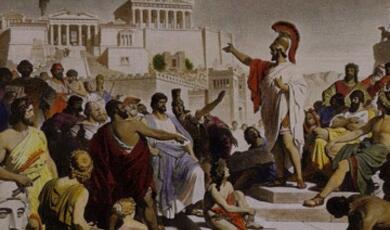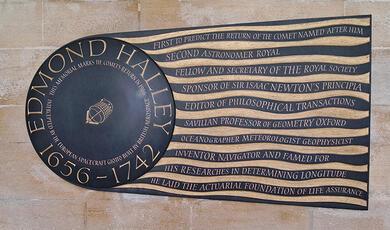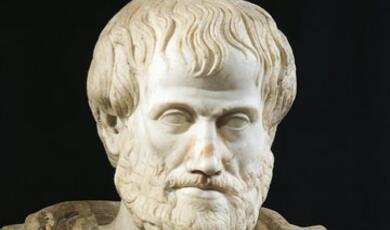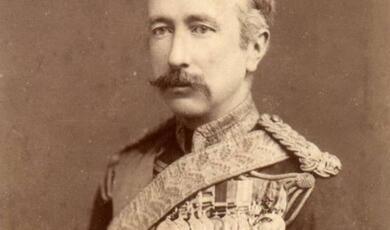A World Remade by Decolonization?
Share
- Details
- Text
- Audio
- Downloads
- Extra Reading
The lecture shares perspectives from global history, comparative politics, and international relations to revaluate whether the twentieth-century collapse of European colonialism was as definitive as often portrayed. It suggests that, while in some ways, ending European Empires remade our contemporary world, in others processes of decolonization are far from complete.
Download Text
A World Remade by Decolonisation?
Martin Thomas
Wednesday 09 April 2025
Empires, until recently, were everywhere. They shaped borders, stirred conflicts, and set the terms of international politics. With the collapse of empire came a fundamental reorganisation of our world.
Decolonisation stands alongside the great world wars as the most transformative event of twentieth-century history, the largest global process of state-making (and empire-unmaking) in modern history. Its struggles became internationalised and transnational, as much global campaigns of moral disarmament against colonial injustice as local contests of arms. Exploring these shifts, the lecture also highlights interactions between decolonisation and its intrinsic link to globalisation. Martin Thomas traces the connections between these two transformative processes: the end of formal empire and the acceleration of global integration, market reorganisation, cultural exchange, and migration. The aim is to show how profoundly decolonisation shaped the process of globalisation in the wake of empire collapse.
In the second half of the twentieth century, decolonisation catalysed new international coalitions; it triggered partitions and wars; and it reshaped North-South dynamics. Globalisation promised the decolonised greater access to essential resources, to wider networks of influence, and to worldwide audiences, but its neoliberal variant has reinforced economic inequalities and imperial forms of political and cultural influences. In surveying these two co-dependent histories across the world, from Latin America to Asia, Thomas explains why the deck was so heavily stacked against newly independent nations.
On one side of the equation, ending empires energised different ideas of belonging and transnational connection, of sovereignty and independence, and of the struggles necessary to achieve them. Late colonial conflicts spurred other connections as the colonised ‘weak’ built transnational networks of support to overcome the military and economic advantages of ‘strong’ imperial overseers. Insurgencies spread. The counterinsurgencies that followed triggered rights abuses whose global exposure left empires shamed.
On the other side of the equation, the meaning of decolonisation is contested because disagreement persists about its essential qualities. The word ‘decolonisation’ was not widely used at the height of the changes it describes in the 1950s and 1960s. Rather, decolonisation was a process of several moving parts: the withdrawal of European rule, the takeover of governmental apparatus by anti-colonial nationalists, the pressures of Cold War rivalries, and the efforts by minority groups in decolonising states to assert separate claims to nationhood. Locating those processes historically invites global perspectives and a stress on contingency. One implication of this is that anti-colonialism makes sense as a unifying abstraction, an expression of opposition to something ethically indefensible, rather than as unswerving support for a particular national form.
These are some of the issues and dilemmas that the lecture discusses.
© Martin Thomas, ISRF, 2025
Select Bibliography
Jane Burbank and Frederick Cooper, Empires in World History: Power and the Politics of Difference (Princeton, N.J.: Princeton University Press, 2011).
Frederick Cooper, Colonialism in Question: Theory, Knowledge, History) Berkeley: University of California Press, 1991).
Sarah C. Dunstan Race, Rights and Reform: Black Activism in the French Empire and the United States from World War I to the Cold War (Cambridge: Cambridge University Press, 2021).
Giuliano Garavini. After Empires: European Integration, Decolonization, and the Challenge from the Global South 1957-1986 (Oxford: Oxford University Press, 2012).
Adom Getachew, Worldmaking after Empire: The Rise and Fall of Self-Determination (Princeton: Princeton University Press, 2019).
Christopher J. Lee (ed.), Making a World After Empire: the Bandung Moment and its Political Afterlives 2nd edition (Athens: Ohio University Press, 2019).
Martin Thomas, The End of Empires and A World Remade: A Global History of Decolonization (Princeton, N.J.: Princeton University Press, 2024).
Thijs Brocades Zaalberg and Bart Luttikhuis (eds.), Empire’s Violent End: Comparing Dutch, British, and French Wars of Decolonization, 1945–1962 (Ithaca, N.Y.: Cornell University Press, 2022).
ane Burbank and Frederick Cooper, Empires in World History: Power and the Politics of Difference (Princeton, N.J.: Princeton University Press, 2011).
Frederick Cooper, Colonialism in Question: Theory, Knowledge, History) Berkeley: University of California Press, 1991).
Sarah C. Dunstan Race, Rights and Reform: Black Activism in the French Empire and the United States from World War I to the Cold War (Cambridge: Cambridge University Press, 2021).
Giuliano Garavini. After Empires: European Integration, Decolonization, and the Challenge from the Global South 1957-1986 (Oxford: Oxford University Press, 2012).
Adom Getachew, Worldmaking after Empire: The Rise and Fall of Self-Determination (Princeton: Princeton University Press, 2019).
Christopher J. Lee (ed.), Making a World After Empire: the Bandung Moment and its Political Afterlives 2nd edition (Athens: Ohio University Press, 2019).
Martin Thomas, The End of Empires and A World Remade: A Global History of Decolonization (Princeton, N.J.: Princeton University Press, 2024).
Thijs Brocades Zaalberg and Bart Luttikhuis (eds.), Empire’s Violent End: Comparing Dutch, British, and French Wars of Decolonization, 1945–1962 (Ithaca, N.Y.: Cornell University Press, 2022).
Part of:
This event was on Wed, 09 Apr 2025
Support Gresham
Gresham College has offered an outstanding education to the public free of charge for over 400 years. Today, Gresham College plays an important role in fostering a love of learning and a greater understanding of ourselves and the world around us. Your donation will help to widen our reach and to broaden our audience, allowing more people to benefit from a high-quality education from some of the brightest minds.


 Login
Login







